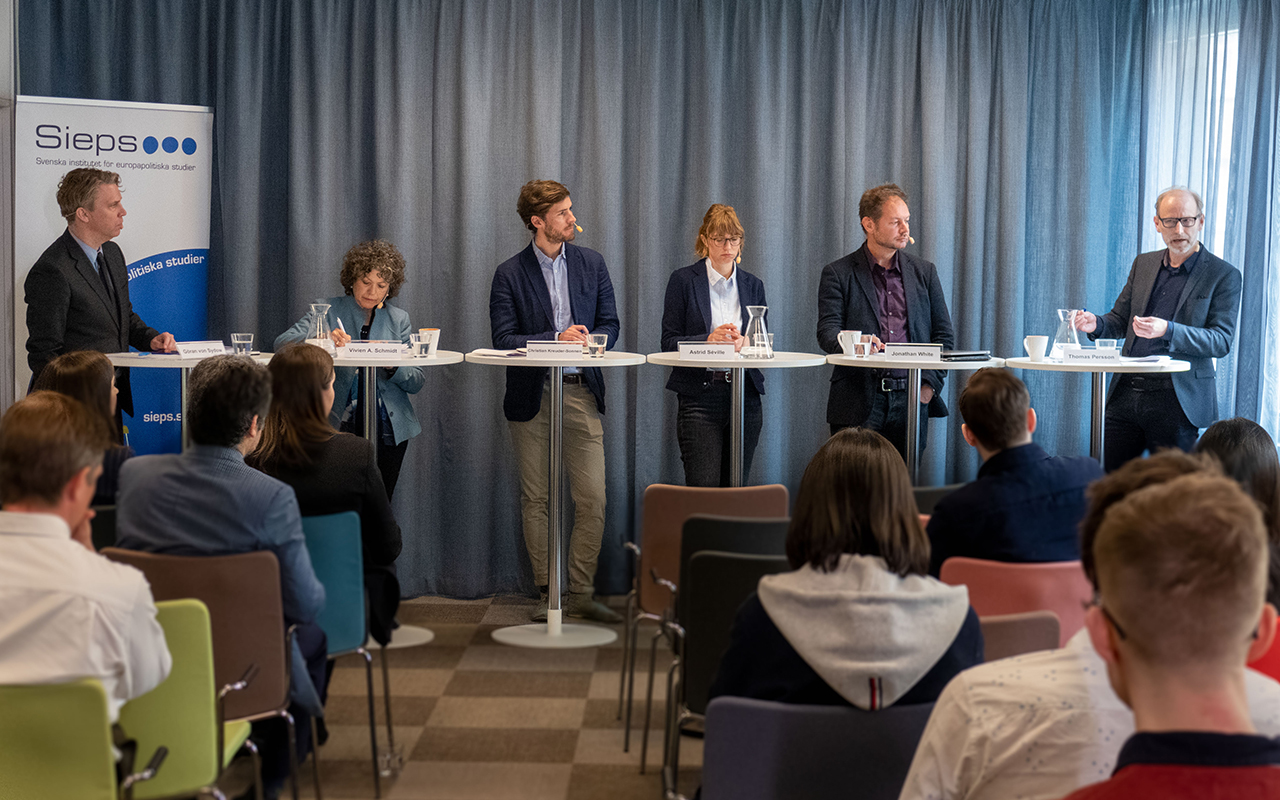Seminar: EU Crisis Management
In recent decades Europe has been rocked by successive crises often managed, to a large extent, at EU level. Many were external in origin, among them the financial crisis and the COVID-19 pandemic. Russia’s invasion of Ukraine is yet another example. At a seminar on 29 April 2022 , four European researchers shared their analyses of how the EU has handled the crises of the 21st century and made assessments of how the EU’s capacity for crisis management can be improved. Their analyses are collected in an anthology that was presented at the seminar.

